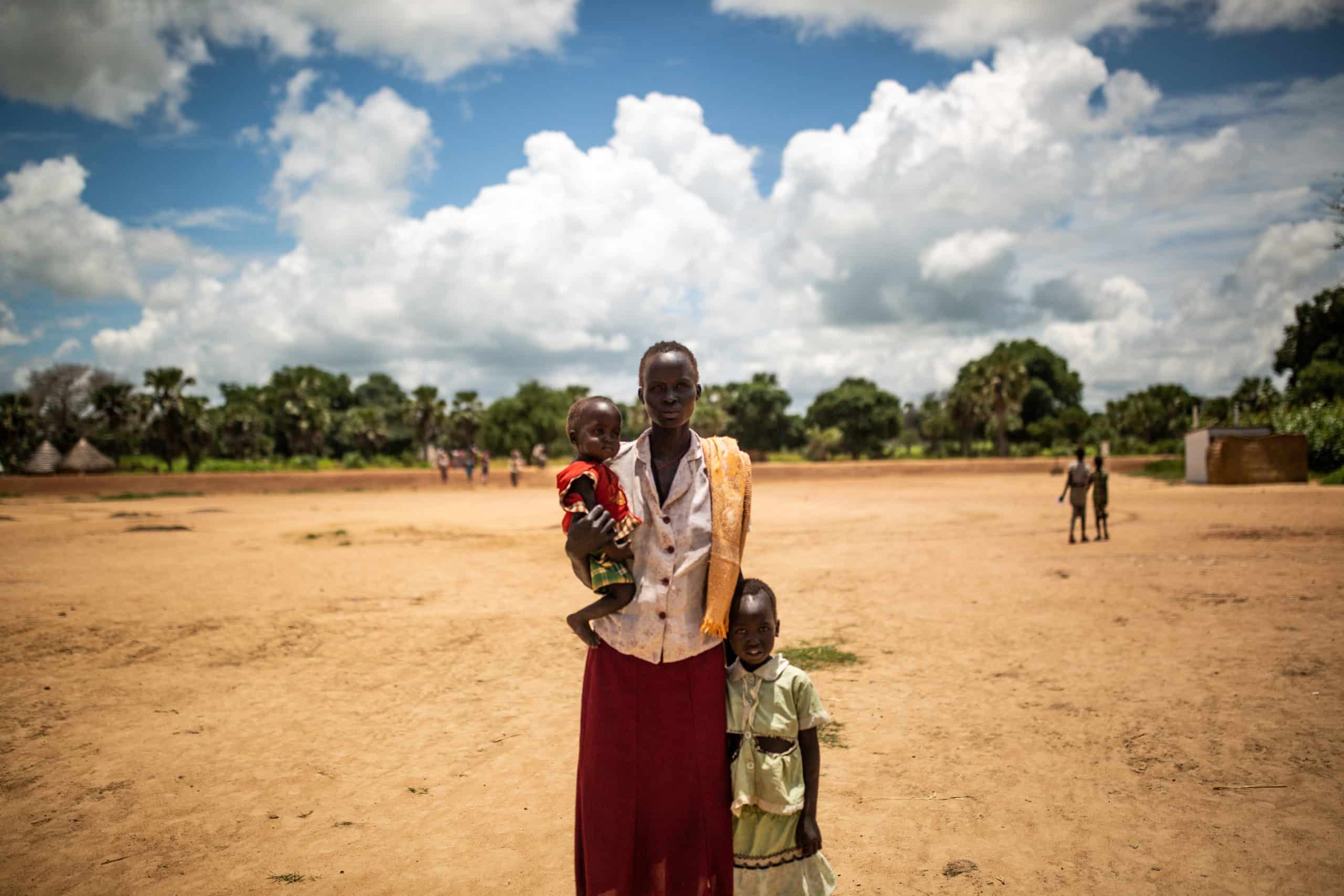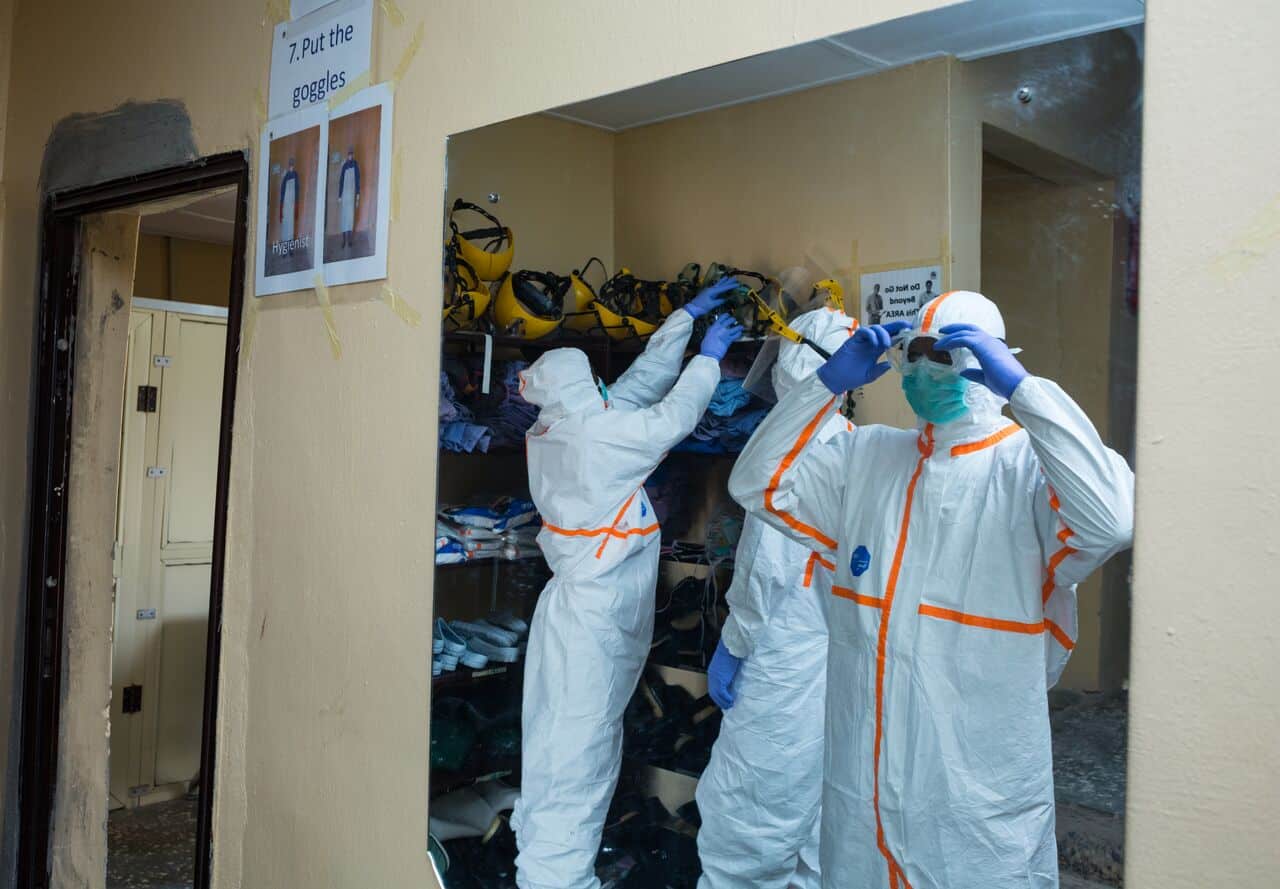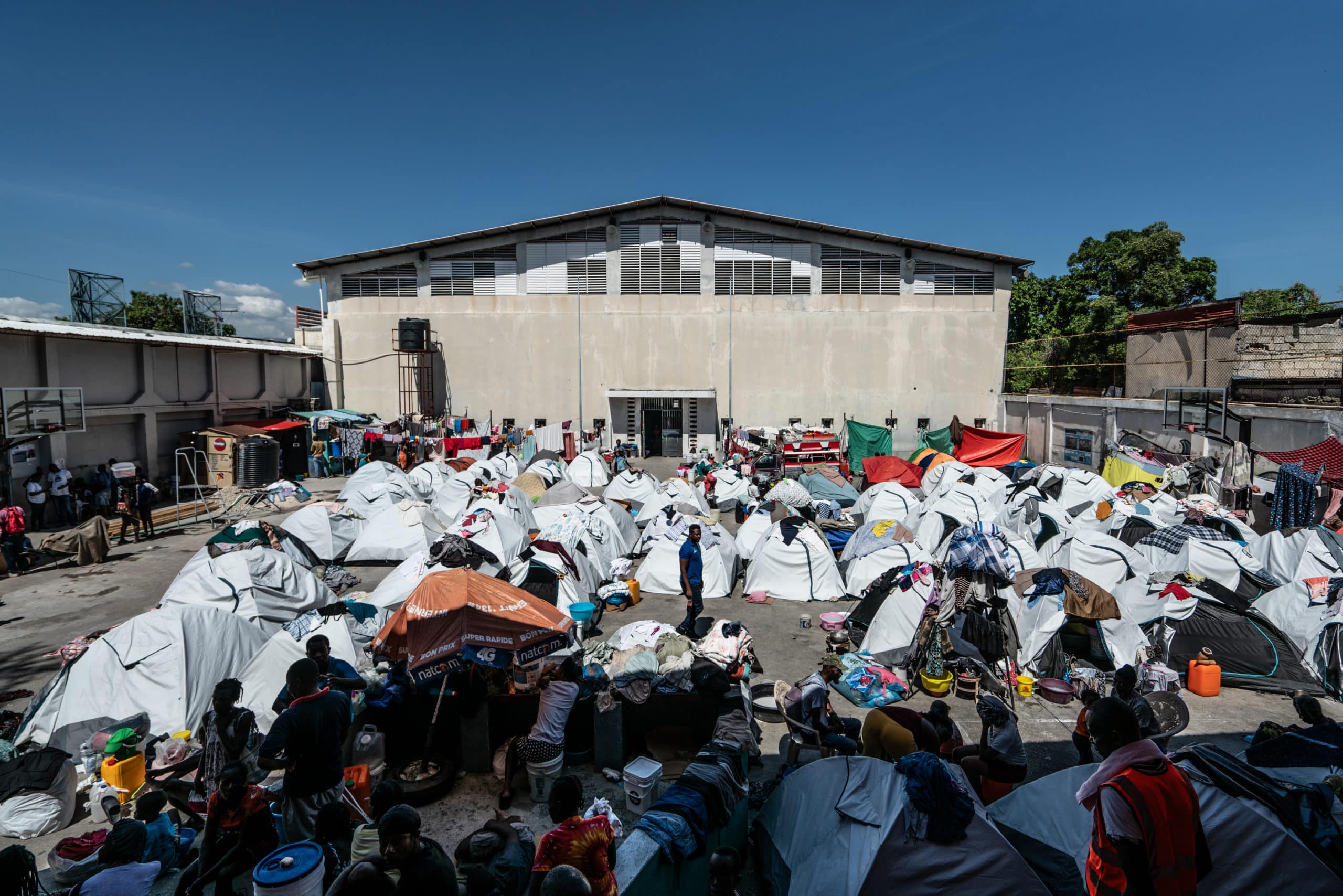© John Wessels / ALIMA
What were your first symptoms and how did you arrive at the Fann University Hospital in Dakar?
On March 22nd, I started to have aches, a cough and a headache. My sisters gave me some medicine and I had a cup of lemon juice. I finally went to the clinic and there the doctor informed me that I should probably go to the emergency room. On March 25, the emergency department took the samples and the next day at 8 p.m., the doctor told me that I was positive for COVID-19: “We are sending the ambulance to transfer you to Fann Hospital and give you treatment.”
I was very scared, I was completely anxious. My sisters were also tested, but luckily they were negative.
How long did your hospitalization last and what were the different stages of treatment?
I arrived at the hospital, where I underwent treatment. Then I had to wait. The wait seemed long to me. On Saturday, I was given some extra medication and vitamin C. I had difficulty breathing, but fortunately I didn’t need supplemental oxygen. On Sunday, I was re-sampled, and on Monday I tested negative for COVID-19. I still had to re-sample for testing. I tested negative Tuesday night through Wednesday night, so I was able to be discharged on Wednesday. I was so happy!
How did you feel during your hospitalization? Physically and emotionally? Were you afraid?
I was very worried. I cried every day. Morally, it was very difficult because I received a lot of information via the internet about the deaths of patients around the world, even young people. I couldn’t breathe, I was very scared. Luckily the doctors were there, they reassured me daily: “You are going to get better!”
I want to say that, despite my concerns, the quality of care was really good. The teams that took care of me did a good job. However, there are still needs, such as gloves and masks. There is also a need for more mosquito nets to ensure that there are no mosquitoes in the rooms – and more equipment to ensure patient comfort.
Following this experience, what is your message to the Senegalese population?
After having gone through all this, my message to all of you, from the bottom of my heart, is to be very careful, to be vigilant, to respect the [prevention] measures outlined by the government. You have to confine yourself to your homes. Protect yourself, wash your hands regularly. It is not only others who can be infected. At the moment, I suffer from insomnia, but fortunately my story has a happy ending.
Many thanks to Anna for her testimony!
——–
*Name has been changed to respect the anonymity of the patient.
Cover photo: ©John Wessels / ALIMA



